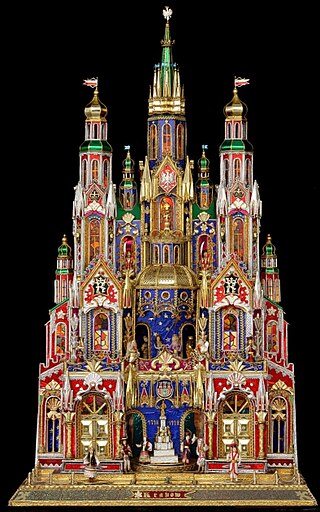
Christmas in Poland is a major annual celebration, as in most countries of the Christian world. The observance of Christmas developed gradually over the centuries, beginning in ancient times; combining old Polish pagan customs with the religious ones introduced after the Christianization of Poland by the Catholic Church. Later influences include the mutual permeating of local traditions and various folk cultures. It is one of the most important religious holidays for Poles, who follow a somewhat strict traditional custom. Christmas trees are decorated and lit in family rooms on the day of Christmas Eve. Other trees are placed in most public areas and outside churches. Christmas in Poland is called "Boże Narodzenie", which translates to 'God's Birth'.

Labour Day is an annual holiday to celebrate the achievements of workers. Labour Day has its origins in the labour union movement, specifically the eight-hour day movement, which advocated eight hours for work, eight hours for recreation, and eight hours for rest.
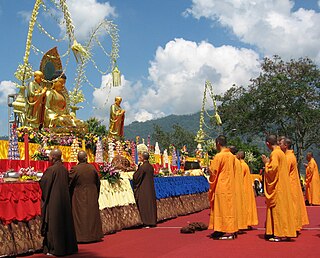
Vesak, also known as Buddha Jayanti, Buddha Purnima, and Buddha Day, is a holiday traditionally observed by Buddhists in South Asia and Southeast Asia, as well as Tibet and Mongolia. It is the most important Buddhist festival. The festival commemorates the birth, enlightenment (Nibbāna), and passing (Parinirvāna) of Gautama Buddha in Theravada, Tibetan Buddhism and Navayana.
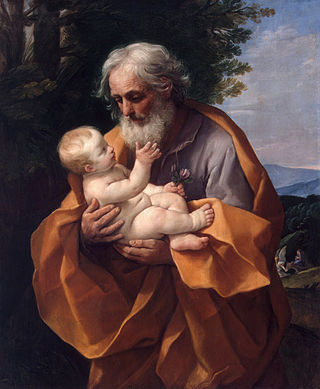
Saint Joseph's Day, also called the Feast of Saint Joseph or the Solemnity of Saint Joseph, is in Western Christianity the principal feast day of Saint Joseph, husband of the Virgin Mary and legal father of Jesus Christ, celebrated on 19 March. It has the rank of a solemnity in the Catholic Church. It is a feast or commemoration in the provinces of the Anglican Communion, and a feast or festival in the Lutheran Church. Saint Joseph's Day is the Patronal Feast day for Poland as well as for Canada, persons named Joseph, Josephine, etc., for religious institutes, schools and parishes bearing his name, and for carpenters. It is also Father's Day in some Catholic countries, mainly Spain, Portugal, and Italy. It is not a holy day of obligation for Catholics in the United States.
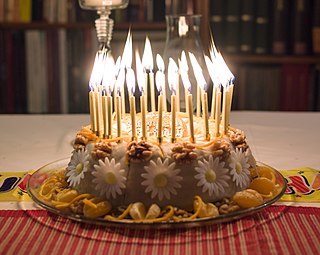
A birthday cake is a cake eaten as part of a birthday celebration. While there is no standard for birthday cakes, they are typically highly decorated layer cakes covered in frosting, often featuring birthday wishes and the celebrant's name. In many cultures, it is also customary to serve the birthday cake with small lit candles on top, especially in the case of a child's birthday. Variations include cupcakes, cake pops, pastries, and tarts.
Casimir Pulaski Day is a local holiday officially observed in Illinois, on the first Monday of March in memory of Casimir Pulaski, a Revolutionary War cavalry officer born in Poland as Kazimierz Pułaski. He is praised for his contributions to the U.S. military in the American Revolution and known as "the father of the American cavalry".

Fat Thursday is a Christian tradition in some countries marking the last Thursday before Lent and is associated with the celebration of Carnival. Because Lent is a time of fasting, the days leading up to Ash Wednesday provide the last opportunity for feasting until Easter. Traditionally it is a day dedicated to eating, when people meet in their homes or cafés with their friends and relatives and eat large quantities of sweets, cakes and other meals usually not eaten during Lent. Among the most popular all-national dishes served on that day are pączki in Poland or Berliners, fist-sized donuts filled with rose hip jam, and angel wings (faworki), puff pastry fingers served with powdered sugar.
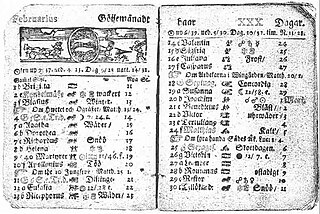
In Christianity, a name day is a tradition in many countries of Europe and the Americas, among other parts of Christendom. It consists of celebrating a day of the year that is associated with one's baptismal name, which is normatively that of a biblical character or other saint. Where they are popular, individuals celebrate both their name day and their birthday in a given year.

World Book Day, also known as World Book and Copyright Day or International Day of the Book, is an annual event organized by UNESCO to promote reading, publishing, and copyright. The first World Book Day was celebrated on 23 April in 1995, and continues to be recognized on that day. A related event in the United Kingdom and Ireland is observed in March. On the occasion of World Book and Copyright Day, UNESCO along with the advisory committee from the major sectors of the book industry, select the World Book Capital for one year. Each designated World Book Capital City carries out a program of activities to celebrate and promote books and reading. In 2024, Strasbourg was designated as the World Book Capital.

Buddha's Birthday or Buddha Day is a primarily Buddhist festival that is celebrated in most of South, Southeast and East Asia, commemorating the birth of the prince Siddhartha Gautama, who became the Gautama Buddha and founded Buddhism. According to Buddhist tradition and archaeologists, Gautama Buddha, c. 563-483 BCE, was born at Lumbini in Nepal. Buddha's mother was Queen Maya Devi, who delivered the Buddha while undertaking a journey to her native home, and his father was King Śuddhodana. The Mayadevi Temple, its gardens, and an Ashoka Pillar dating from 249 BCE mark the Buddha's birth place at Lumbini.

Pasterka is a midnight mass celebrated by Roman Catholics during Christmas between December 24 and 25 across Poland. A close translation of the name would be the "Shepherds' Mass", in reference to the Biblical shepherds, who were visited by an angel and told of the birth of Christ. During the Pasterka Mass, Polish people sing traditional kolędy, Christmas carols in the spirit of joy.

Solemn Mass is the full ceremonial form of a Mass, predominantly associated with the Tridentine Mass where it is celebrated by a priest with a deacon and a subdeacon, requiring most of the parts of the Mass to be sung, and the use of incense. It is also called High Mass or Solemn High Mass.
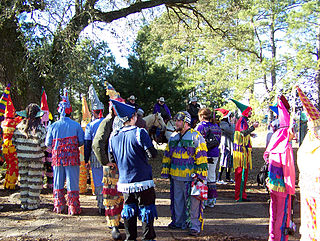
A capuchon is a cone-shaped ceremonial hat worn during the Mardi Gras celebration in the Cajun areas of southern Louisiana, known as the Courir de Mardi Gras. The rural celebration is based on early begging rituals, similar to those still celebrated by mummers, wassailers and celebrants of Halloween. As Mardi Gras is the celebration of the final day before Lent, celebrants drink and eat heavily, but dress in costume, ostensibly to protect their identities.
There are many and varied customs associated with the celebration of birthdays around the world.

A birthday is the anniversary of the birth of a person, or figuratively of an institution. Birthdays of people are celebrated in numerous cultures, often with birthday gifts, birthday cards, a birthday party, or a rite of passage.
In Sweden, public holidays are established by acts of Parliament. The official holidays can be divided into Christian and non-Christian holidays. The Christian holidays are jul (Christmas), trettondedag jul (Epiphany), påsk (Easter), Kristi himmelsfärds dag, pingstdagen (Pentecost), and alla helgons dag. The non-Christian holidays are: nyårsdagen, första maj, Sveriges nationaldag, and midsommar (Midsummer). Midsummer is, however, officially also a Christian holiday to celebrate John the Baptist's birthday.

Koningsdag or King's Day is a national holiday in the Kingdom of the Netherlands. Celebrated on 27 April, the date marks the birth of King Willem-Alexander. When the Dutch monarch is female, the holiday is known as Koninginnedag or Queen's Day and, under Queen Beatrix until 2013, was celebrated on 30 April. She prolonged the tradition that was born under her mother’s reign: Queen Juliana’s birthday was on April 30th.
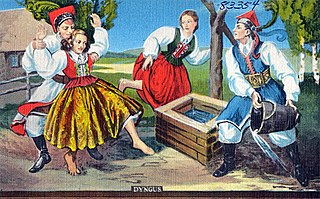
Śmigus-dyngus or lany poniedziałek is a celebration held on Easter Monday across Central Europe, and in small parts of Eastern and Southern Europe. The tradition is widely associated with Poland in English-speaking countries and is observed by Polish diaspora communities, particularly among Polish Americans who call it Dyngus Day. The tradition is also deeply rooted in Hungary.
Farvardinegan is a yearly Zoroastrian ceremony. This ceremony takes place on Farvardin 19th. Farvardinegan is a ceremony to remember the deceased; it is celebrated as a feast, and the spirits of the deceased are called to unite in their joy.